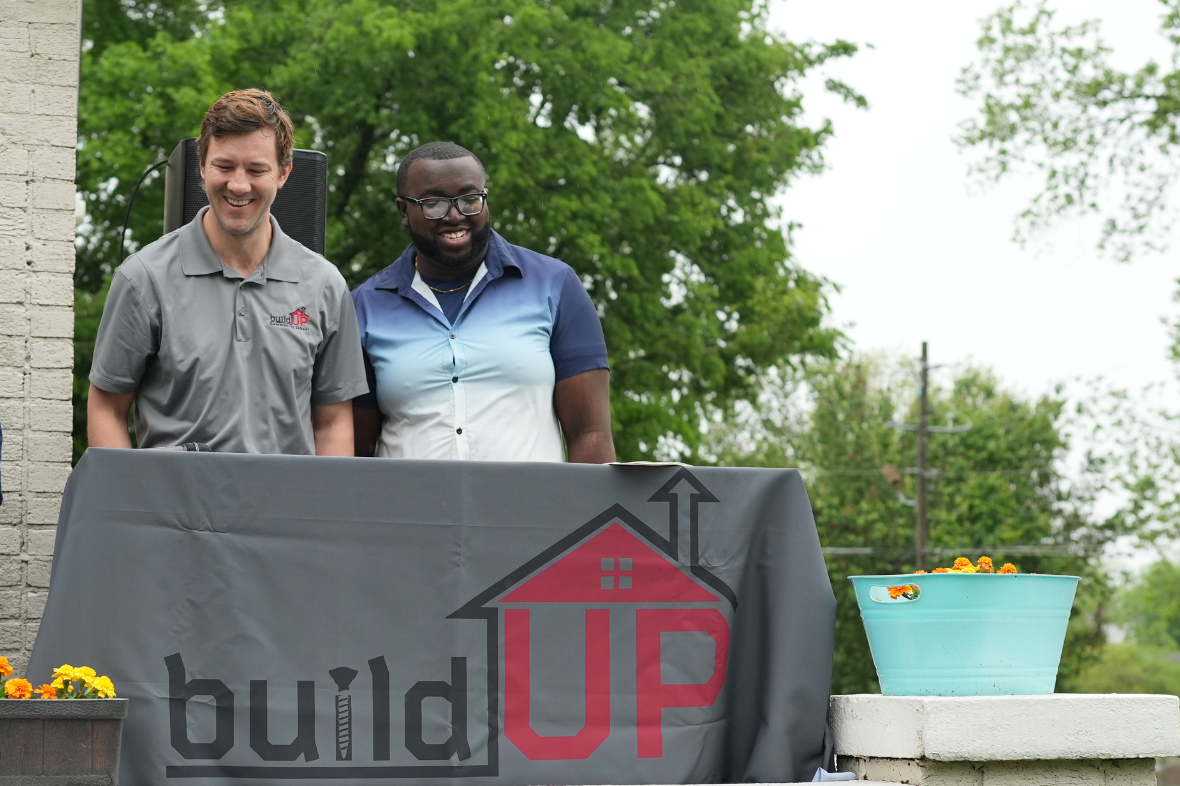Taking low-income youth from high school to home ownership

Interviews, News
Interview: Mark Martin is founder and CEO of Build UP, the first workforce development high school in the US. It provides low-income youth from hard-hit Ensley, Alabama with paid apprenticeships and a path to stable employment and home ownership.
Build UP was a finalist in our first Big Ideas, Bright Cities Challenge, in 2022. We wanted to know how Mark went from being a first-grade teacher to the innovator behind a charter school. Do you know a U.S. nonprofit that works with city or regional agencies to improve youth skills? Tell them to apply to our Youth Skills and Employment Accelerator.
Why did you start this nonprofit?
After graduating from the University of Alabama I started as a first grade Teacher with Teach for America. I saw all the things that were troubling about public education and that kind of drove me to want to do more while staying in education. I ended up founding a charter school in post-Katrina New Orleans and again I just saw what a big impact poverty has on classroom outcomes. Build UP was kind of culmination of the first 15 years of my career in education. I returned to my home state to see how we can create a better support system with a school but without overburdening teachers, because like so many inner-city areas, public high schools are failing here. They’re not preparing kids for anything, they’re not preparing them for college, they’re certainly not preparing them for work. That means asking how can we partner with the business community? How can we partner with the public sector and the private sector?
How did this lead to Build UP Community School?
We started in 2018 to be a very different school model – a model where young people could make a difference in their own communities while also setting themselves up to step out of poverty and into generational wealth. The primary way to stabilize communities and build wealth is through home ownership. In this case, students can develop skills that can help them get a middle-class job and revive the community’s housing stock by working on houses at the same time. We usher them through the first couple years beyond high school so that they can continue getting the support they need to find that job – we’ve set the floor for that at $40,000 a year.
What needs are you meeting in Birmingham and Ensley in particular?
The population in Ensley at one time was around 45,000 and there were 30,000 steel jobs. When the steel industry went away, the population went down by around 90% to 4,000 residents. You can imagine the vacant housing stock when you have that kind of decline, and problems that come with that. At the same time, there are lots of jobs connected to housing that can help regenerate areas. The good news now is that there is plenty of work for students who have the right training in plumbing, electrics, HVAC [heating, ventilation and air-conditioning], though not everyone has to go into that.
How has the program been received?
It’s gone from strength to strength. We’ve added 20-25 students every year and just this week we celebrated Torrey Washington, our first graduate to become a homeowner (in the photo). He‘s 21 and has purchased a home with a zero-interest mortgage so he can stabilize his family, his neighborhood, and begin his career building wealth. He’s got a job with a commercial builder installing HVAC systems inside of modular-built medical centres.
As a finalist in the Big Ideas, Bright Cities Challenge, you have been involved in the Global Business Coalition for Education’s Community Impact Incubator program, joining workshops with experts. How have those sessions been useful?
There are a lot of sources of funding out there and being connected to colleagues across the country who can help us better understand how to tap into those has been a big benefit. Funding is always a challenge. There was a session around braided funding and how we just have to get more creative with how we fund programs like this, how to leverage corporate philanthropy and public grant dollars and tax credits. You can read more about Build UP here.
Do you know a U.S. nonprofit that works with city or regional agencies to improve youth skills? Tell them to apply to our Youth Skills and Employment Accelerator.
